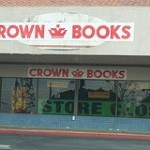 Why should I read this book? This is the question every reader holds when cracking open the pages of any novel, or work of fiction and deciding whether to invest money and time into purchasing and reading it.
Why should I read this book? This is the question every reader holds when cracking open the pages of any novel, or work of fiction and deciding whether to invest money and time into purchasing and reading it.
Unlike and then somewhat like movies that have an almost built in quality of coercing the viewer to take the time to view it, writers must woo our readers. Readers have to work a little harder to read and imagine.
But oh, the payoff is so much better when the work is well crafted, engaging, entertaining and delivers information to boot.
For non-fiction books the answer centers on, What knowledge will I gain? This is usually defined in the title, and outlined on the back of the book.
The answer for works of fiction, the answer, while offered in a more abstract manner, must hold no less clarity.
The answer must always address, “What can I, the reader, learn about life, others and myself by reading this book?”
On the surface readers are looking for entertainment, an escape. A good book is truly an escape. It holds a dreamlike quality.
E. M. Forster says the novel is a dream crafted in such a manner as to not upset the boundaries and break the spell, of the dream, that is.
But what are dreams at their core? Internal experiences, and phenomena wherein the dreamer gains information that is both complimentary and compensatory to their experiences in waking life.
Dreams often display what we most hope and wish to gain for our waking lives.
We read to know and affirm that we are not alone. In identifying with a protagonist or major character, we come one step closer to experiencing the manifestation of our hopes, and wishes in physical and/or tangible form.
What was the most moving fiction or non-fiction book you read last year?
Describe how you felt like when having completed it?
Or perhaps it was a poem? Poems deliver information too. They also hold plot and reflect risk too.
